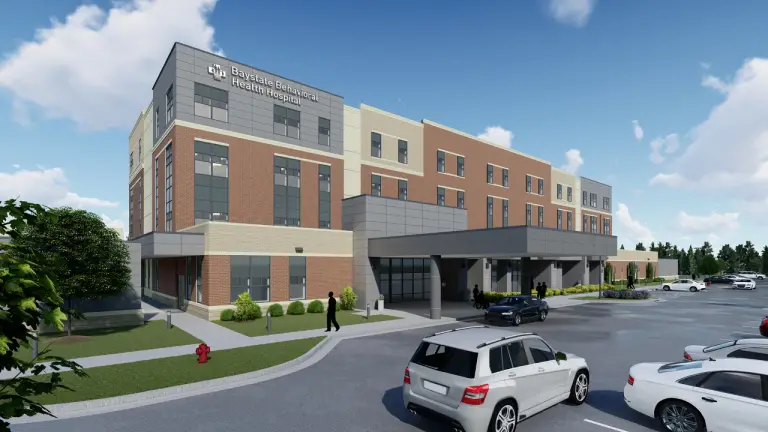The Valley Springs Behavioral Health Hospital project is now nearing its final stage of completion in Holyoke, Massachusetts. Baystate Health and Lifepoint Behavioral Health formed a partnership to build the new hospital at the former Holyoke Geriatric Authority site.
The Valley Springs Behavioral Health Hospital’s CEO Roy Sasenaraine, said planning and construction processes were focused primarily on patient safety. Therefore, he said the design of the new building ensures that modern technology can be used to elevate patient safety. Roy also said privacy was accounted for in every aspect of the building, from patient rooms to the gymnasium.
Development plans for the Valley Springs Behavioral Health Hospital
The $72 million Behavioral Health Hospital project is going up at 45 Lower Westfield Road. It will accommodate 150 beds, thereby increasing the capacity for adults, children, and adolescent patients by 50 per cent. However, 30 beds will be dedicated to longer-term care through the Massachusetts Department of Mental Health.
While the stays outside the 30-bed long-term units will be short-term. According to Sasenaraine, it could take between five to seven days to cater for patients needing mental health stabilization. But stays could last as long as 30 days.
Also Read UAMS Orthopaedic and Spine Hospital opens in Arkansas
The new Valley Springs Behavioral Health Hospital provides patients with access to outdoor spaces. It’s a secure outdoor space with room for people to garden, play basketball or just sit. In addition, the property includes a gym as well as an area reserved for group activities or art therapy. Although the facility has the look of a hotel, Sasenaraine pointed out that it’s still designed like a hospital.
All rooms at the Behavioral Health Hospital have semi-private designs with roommates to combat isolation. The designs also focus on preventing self-harm in patients by eliminating sharp points or edges on various amenities. Additionally, fixtures like door handles and toilets will have designs that ensure they can’t be used to create ligatures. The rooms will also have window blinds without strings.

